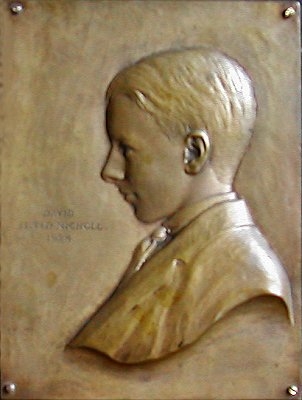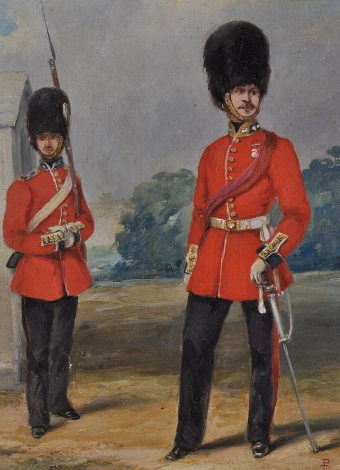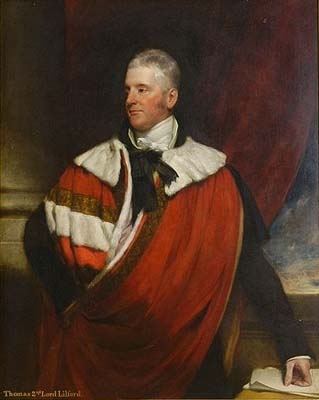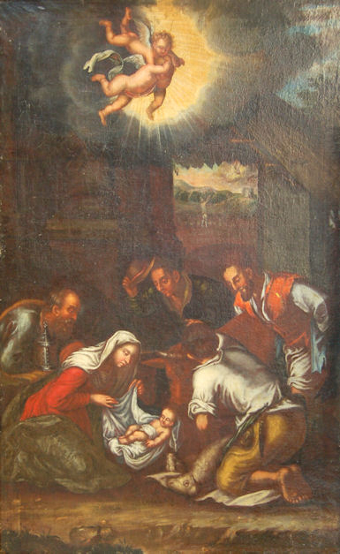helen of troy
- View other items in:
- antiques interior design modern and vintage
- other interior design
artware ltd
Enquire about this antique
Artware Ltd has 565 antiques for sale.
click here to see them all
Helen of Troy is quite possibly one of the most inspired characters of all time, including modern and ancient literature. She has become a symbol of man''s erotic desires and of all of the varied moods of womanhood (Pollard 1). The ancient myth that forever associates her with beauty and the Trojan War was first recorded in written language by Homer, but continues to be written about today. Her story is one that is intricately intertwined with many of the Greek gods and goddesses.The beginnings of the story of Helen have little to do with her personally. As was characteristic of Greek mythology and the interactions of the deities with their human counterparts, she was never more than a puppet in various heavenly battles, beginning with three goddesses, and then stretching to include all of the deities on Olympus, the place in the sky from where the gods and goddesses reigned.The first event that would end up directly leading to the Trojan War was that of the wedding of King Peleus and the immortal sea nymph Thetis. The goddess of Discord, Eris, was not invited to the wedding, and in order to get revenge, she threw a golden apple into the midst of the wedding party. It was marked "For the Fairest," and although all of the goddesses felt that they were deserving of it, only three actually fought over it. Those three were Aphrodite, Hera, and Athena. Zeus, the king of the gods, was asked to judge which of these three was the fairest, but he refused because Hera was his wife, and told them that a young mortal named Paris, or later, Alexandros, was an excellent judge of beauty.
The goddesses each tried to bribe Paris before the competition began. Hera''s offer was of sovereignty over all of Asia, while Athena offered him victory in war, but Aphrodite''s offer of the most beautiful woman in the entire world prevailed upon him, and he chose her as the fairest of the three (Pollard 43). Aphrodite fulfilled the bribe and gave him Helen of Troy, the most beautiful woman in the world. Although this would be the first time that Helen and Paris had ever interacted, their childhood paths were unmistakably similar. This was due to the fact that the gods had been intervening in their lives from their births, as they foresaw the destruction that would soon be caused by their union.There are two variations of Helen''s birth. Both hold that her father was Zeus, but they differ in the account of who her mother was. Whichever was actually true, she grew up as the child of two mortals: Leda and Tyndareus. The first account states that Zeus took advantage of Leda while he was in the form of a swan, and that the same night, Tyndareus also had sexual intercourse with his wife.Leda produced two eggs, one of which was fertilized by each man. The first egg (that which was fertilized by Zeus) produced Helen and Polydeuces, while the second (that which was fertilized by Tyndareus) produced Castor and Clytemnestra. (vanaheim.princeton.edu/Myth/helen.html) The second account states that Helen''s mother was not Leda, but instead was the goddess Nemesis(Pollard 25). Nemesis, in the attempt to resist Zeus'' advances upon her, changed herself into a goose, while Zeus, in turn, became a swan, and took advantage of her while in this form. As a result of this sexual intercourse between Zeus and Nemesis, she laid an egg, which was then found by a shepherd. He took the egg to Leda, who kept it until it hatched, at which time Helen was born. Leda then raised Helen as her own child. When Helen was ten years old, she was kidnapped by the Athenian hero and king Thesus, however, her brothers Castor and Polydeuces soon rescued her and brought her back to safety. Helen''s beauty soon became quite renowned throughout Greece, and her suitors spanned numerous cities.Paris, though he was raised quite far from Helen, endured some of the same experiences as she did. He was the child of the King of Troy, Priam, and his wife Hecuba. Hecuba had a dream while Paris was only a baby that he would cause the destruction of Troy, which caused her to desert him on a mountain in the hopes that he would die. However, he was found and raised by a shepherd. Paris was reunited with his parents soon after the beauty contest between the goddesses, and became one of the most important members of Trojan society. Paris was married once before he met Helen. He was deeply in love with a nymph named Oenone, but left her when he was given Helen by Aphrodite.
Helen became more directly involved in her future in Troy when it came time for her father to choose which of her suitors would become her husband. It is important to note that her beauty was so well known that every Greek hero, with only one exception, has been listed by the poets as being among her suitors. The only exception, with no known explanation, is that of Achilles, who was one of the most respected and accomplished Greek warriors. Helen''s father, Tyndareus, was concerned about Helen''s safety after she had been married, and in order to ensure that none of the other suitors would abduct Helen in fury or lust, he required all of them to take an oath to assist her husband, whichever suitor it would be, in the event of a rival attempting to take Helen away. This oath was to become quite important in the development of the Trojan War.The decision of a father as to whom would be his daughter''s husband was based largely on the price in gold or land that each suitor offered. The largest offering was given by a warrior named Menelaos and thus, he and Helen were married. Menelaos succeeded Tyndareus as King of Sparta, and they lived quite happily for nine years, during which time Helen bore him a daughter named Hermione. The reason that Paris went to Laedemon, the place where Helen and Menelaos lived, is questionable. Some sources say that Paris knew that he was going to retrieve Helen, the woman whom had been given to him by Aphrodite. Others say that he had met Menelaos before, and was going on a mission for his father, while still others say that he was going to avenge the enslavement of his aunt by the Greeks. No thoroughly convincing or steadfast reasons or evidence have been brought forth, however, and the best explanation remains that Paris arrived in the house of Menelaos and Helen just days before Menelaos left to go on a long trip for no other reason than that it was in accordance with the will of Zeus.
Once Paris had arrived in Helen''s house and Menelaos left for his trip, Aphrodite did not waste any time in convincing Helen to forsake her family and home in order to be with Paris.As soon as Menelaos returned to his empty house, he hastened to remind the other Greek men who had been suitors of Helen of the oath they had made to Tyndareus. This was the reason that all of the Greek heroes were present for the Trojan War. They immediately set sail for Troy, but ran into many obstacles before reaching their destination. At the point of the war where the first reliable written account of it, The Iliad, begins, the battle has already been raging for a little over nine years. Neither side has a definitive edge over the other, and no reconciliation seems imminent. Although the majority of the book is spent in discussion of the internal conflicts between the Greek and Trojan forces respectively, and the battles between the two, there is a fair amount in which Helen appears. The Helen that is described over nine years after her flight from her homeland seems to be a much different woman than the one that hastily left with a man she had never met before. She realizes what she has done, and understands that she is the cause of the deaths of thousands of both her old countrymen, the Greeks, and her new countrymen, the Trojans. The desire that she once had for Paris has long since faded, and she longs only for her home and her husband Menelaos, whom she still loves. She repeatedly says that she wishes that she had never been born, so that the destruction that she caused could have been avoided.In Book Three of The Iliad, Menelaos challenges Paris to a one on one fight to the death, where the winner would take Helen and her property, and the Greeks would leave, whichever way the fight went. The property referred to is believed to be the land and money that Menelaos offered to her father in exchange for her marriage. Helen tells Paris that she believes Menelaos will conquer him quite easily, and expresses her joy at the thought of his demise, so that she could return to Sparta. However, when the two men fight, Menelaos, in the moment of victory, is halted when Aphrodite surrounds Paris in a cloud of mist, and takes him to the safety of his bedchamber.
When Aphrodite approaches Helen after the battle in order to bring her to the bedside of Paris, Helen bitterly confronts her about her seemingly helpless situation: Will you carry me further yet somewhere among cities fairly settled? In Phrygia or in lovely Maionia? Is there some mortal man there also who is dear to you? Is it because Menelaos has beaten great Alexandros and wishes, hateful even as I am, to carry me homeward, is it for this that you stand in your treachery now beside me? Go yourself and sit beside him, abandon the gods'' way, turn you feet back never again to the path of Olympus but stay with him forever, and suffer for him, and look after him, until he makes you his wedded wife, or makes you his slave girl. Not I. I am not going to him. It would be to shameful. I will not serve his bed, since the Trojan women hereafter would laugh at me, all, and my heart is even now confused with sorrows. These words, spoken in contempt to the great goddess Aphrodite, show the depth of Helen''s woe about her hasty decision to leave Sparta and Menelaos. She realizes that it was the will of the gods, and that she had little choice but to concede to their desires. This also shows that she no longer cares for Paris at all, and understands that the women of Troy despise her for the destruction that she has brought to them and their families. Her lack of feeling for Paris is shown in the image below where Helen, the fair colored woman on the far right has her face completely turned away from Paris, the man directly to her left.The rest of The Iliad describes the remainder of the tenth year of the Trojan War. The end of the war follows the deaths of many of the greatest warriors on both sides, including Paris. After Paris dies, for unknown reasons, Helen marries his brother. The end of the war is brought about through the guise of the infamous Trojan Horse. The Greeks built a large horse, and stowed the best warriors that they had left inside of it. They then pretended to leave Troy in their ships, but in reality only sailed to a nearby island. They left one man behind to tell the Trojans that the horse was a gift from the gods, who would be angered if they did not allow it inside of the gates. After a sign from the heavens that the Trojans took to mean that this was true, they allowed the horse to be brought inside the city walls. The Greeks who were inside of the horse escaped during the night and opened the gates for the rest of their comrades, who had returned from the island. The Greeks then sacked the city, and burned it to its foundation. The women were captured and taken as slaves, while all of the men were murdered. Most of the children were either killed or also taken as slaves. Helen was captured along with the rest of the Trojan women. There are also contradictory descriptions of Helen''s fate after the sacking of Troy.One account states that while the rest of the Trojan women were being led into captivity, Helen was reconciled with Menelaos, and without further trouble, returned to her homeland as Sparta''s queen. The ancient playwright Euripidies, however, in the play The Trojan Women., set at the days immediately following the fall of Troy, tells another story.
Antiques.co.uk Ref: D9FAVYTP
- Materials:
- Oil on Canvas
- Width (cm):
- 37 x 26 in. (94 x 67 cm.)
Artware Ltd
Artware Fine Art specialises in fine antique, decorative and historical portraits and topographical pictures . We cover a period from the 17th and 18th centuries through to the 19th & 20th Centuries. We have over 150 portraits in stock, which can be viewed on our web site, each historical portrait has well researched biographical information both on the sitter and the artist.
Contact details
18 La gare
51 Surrey row
London
Greater London
SE1 0BZ
UNITED KINGDOM
T: 0207 921 97904
E: greg@artwarefineart.com
W: www.artwarefineart.com











